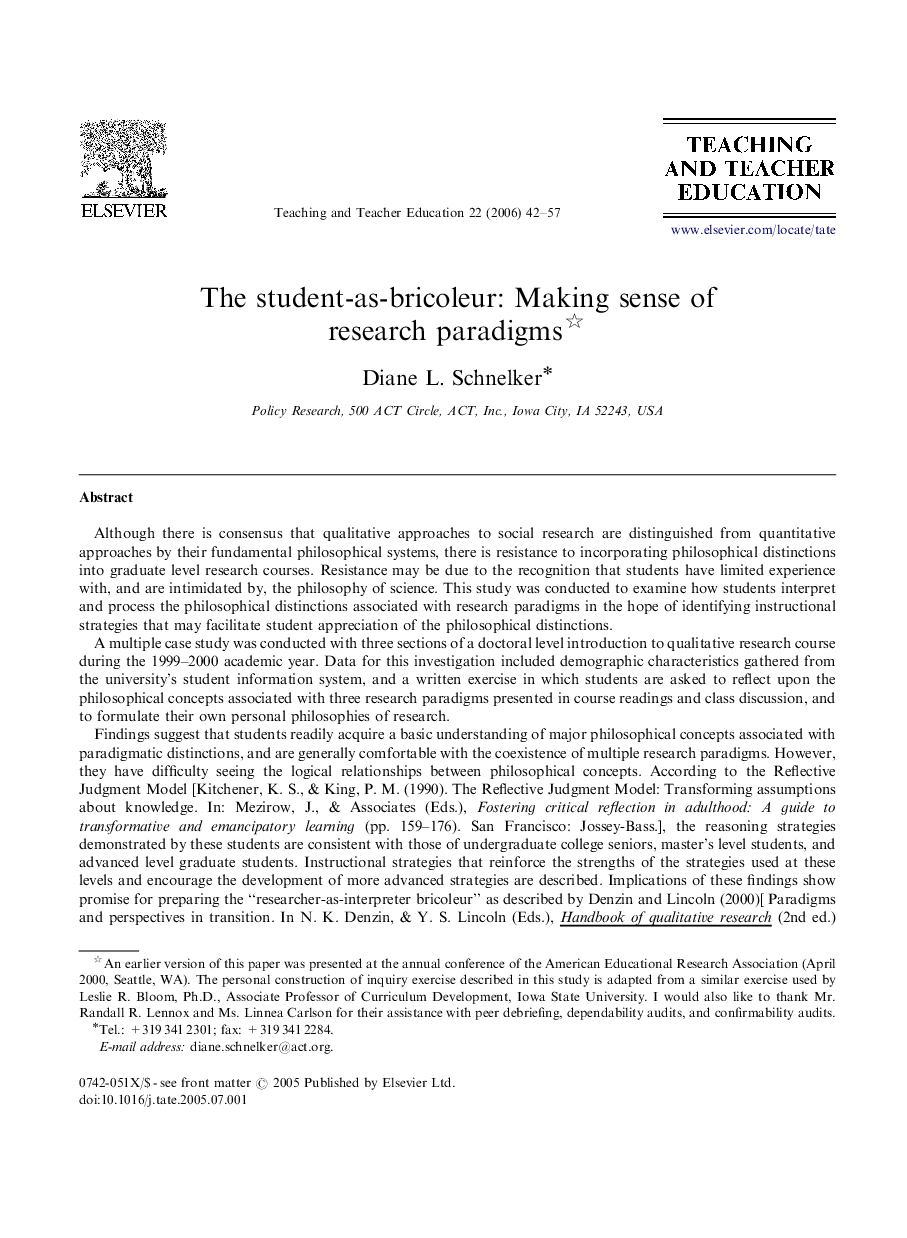| کد مقاله | کد نشریه | سال انتشار | مقاله انگلیسی | نسخه تمام متن |
|---|---|---|---|---|
| 375097 | 622552 | 2006 | 16 صفحه PDF | دانلود رایگان |

Although there is consensus that qualitative approaches to social research are distinguished from quantitative approaches by their fundamental philosophical systems, there is resistance to incorporating philosophical distinctions into graduate level research courses. Resistance may be due to the recognition that students have limited experience with, and are intimidated by, the philosophy of science. This study was conducted to examine how students interpret and process the philosophical distinctions associated with research paradigms in the hope of identifying instructional strategies that may facilitate student appreciation of the philosophical distinctions.A multiple case study was conducted with three sections of a doctoral level introduction to qualitative research course during the 1999–2000 academic year. Data for this investigation included demographic characteristics gathered from the university's student information system, and a written exercise in which students are asked to reflect upon the philosophical concepts associated with three research paradigms presented in course readings and class discussion, and to formulate their own personal philosophies of research.Findings suggest that students readily acquire a basic understanding of major philosophical concepts associated with paradigmatic distinctions, and are generally comfortable with the coexistence of multiple research paradigms. However, they have difficulty seeing the logical relationships between philosophical concepts. According to the Reflective Judgment Model [Kitchener, K. S., & King, P. M. (1990). The Reflective Judgment Model: Transforming assumptions about knowledge. In: Mezirow, J., & Associates (Eds.), Fostering critical reflection in adulthood: A guide to transformative and emancipatory learning (pp. 159–176). San Francisco: Jossey-Bass.], the reasoning strategies demonstrated by these students are consistent with those of undergraduate college seniors, master's level students, and advanced level graduate students. Instructional strategies that reinforce the strengths of the strategies used at these levels and encourage the development of more advanced strategies are described. Implications of these findings show promise for preparing the “researcher-as-interpreter bricoleur” as described by Denzin and Lincoln (2000)[ Paradigms and perspectives in transition. In N. K. Denzin, & Y. S. Lincoln (Eds.), Handbook of qualitative research (2nd ed.) (pp. 155-162). Thousand Oaks: Sage] that understands and can discuss the philosophical assumptions of all research paradigms.
Journal: Teaching and Teacher Education - Volume 22, Issue 1, January 2006, Pages 42–57